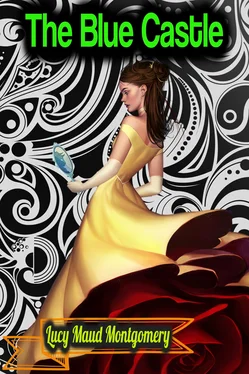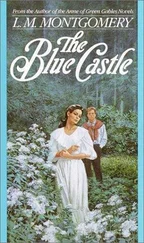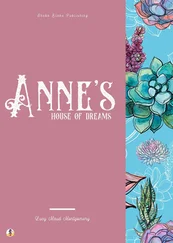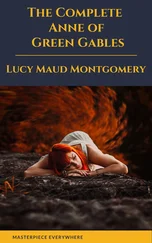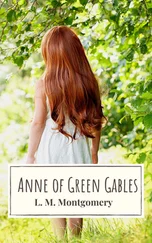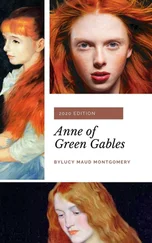Valancy reviewed her whole life between midnight and the early spring dawn. It was a very drab existence, but here and there an incident loomed out with a significance out of all proportion to its real importance. These incidents were all unpleasant in one way or another. Nothing really pleasant had every happened to Valancy.
"I've never had one wholly happy hour in my life—not one," she thought. "I've just been a colourless nonentity. I remember reading somewhere once that there is an hour in which a woman might be happy all her life if she could but find it. I've never found my hour—never, never. And I never will now. If I could only have had that hour I'd be willing to die."
Those significant incidents kept bobbing up in her mind like unbidden ghosts, without any sequence of time or place. For instance, that time when, at sixteen, she had blued a tubful of clothes too deeply. And the time when, at eight, she had "stolen" some raspberry jam from Aunt Wellington's pantry. Valancy never heard the last of those two misdemeanours. At almost every clan gathering they were raked up against her as jokes. Uncle Benjamin hardly ever missed re-telling the raspberry jam incident—he had been the one to catch her, her face all stained and streaked.
"I have really done so few bad things that they have to keep harping on the old ones," thought Valancy. "Why, I've never even had a quarrel with any one. I haven't an enemy. What a spineless thing I must be not to have even one enemy!"
There was that incident of the dust-pile at school when she was seven. Valancy always recalled it when Dr. Stalling referred to the text, "To him that hath shall be given and from him that hath not shall be taken even that which he hath." Other people might puzzle over that text but it never puzzled Valancy. The whole relationship between herself and Olive, dating from the day of the dust-pile, was a commentary on it.
She had been going to school a year, but Olive, who was a year younger, had just begun and had about her all the glamour of "a new girl" and an exceedingly pretty girl at that. It was at recess and all the girls, big and little, were out on the road in front of the school making dust-piles. The aim of each girl was to have the biggest pile. Valancy was good at making dust-piles—there was an art in it—and she had secret hopes of leading. But Olive, working off by herself, was suddenly discovered to have a larger dust-pile than anybody. Valancy felt no jealousy. Her dust-pile was quite big enough to please her. Then one of the older girls had an inspiration.
"Let's put all our dust on Olive's pile and make a tremendous one," she exclaimed.
A frenzy seemed to seize the girls. They swooped down on the dust-piles with pails and shovels and in a few seconds Olive's pile was a veritable pyramid. In vain Valancy, with scrawny, outstretched little arms, tried to protect hers. She was ruthlessly swept aside, her dust-pile scooped up and poured on Olive's. Valancy turned away resolutely and began building another dust-pile. Again a bigger girl pounced on it. Valancy stood before it, flushed, indignant, arms outspread.
"Don't take it," she pleaded. "Please don't take it."
"But why ?" demanded the older girl. "Why won't you help to build Olives bigger?"
"I want my own little dust-pile," said Valancy piteously.
Her plea went unheeded. While she argued with one girl another scraped up her dust-pile. Valancy turned away, her heart swelling, her eyes full of tears.
"Jealous—you're jealous!" said the girls mockingly.
"You were very selfish," said her mother coldly, when Valancy told her about it at night. That was the first and last time Valancy had ever taken any of her troubles to her mother.
Valancy was neither jealous nor selfish. It was only that she wanted a dust-pile of her own—small or big mattered not. A team of horses came down the street—Olive's dust pile was scattered over the roadway—the bell rang—the girls trooped into school and had forgotten the whole affair before they reached their seats. Valancy never forgot it. To this day she resented it in her secret soul. But was it not symbolical of her life?
"I've never been able to have my own dust-pile," thought Valancy.
The enormous red moon she had seen rising right at the end of the street one autumn evening of her sixth year. She had been sick and cold with the awful, uncanny horror of it. So near to her. So big. She had run in trembling to her mother and her mother had laughed at her. She had gone to bed and hidden her face under the clothes in terror lest she might look at the window and see that horrible moon glaring in at her through it.
The boy who had tried to kiss her at a party when she was fifteen. She had not let him—she had evaded him and run. He was the only boy who had ever tried to kiss her. Now, fourteen years later, Valancy found herself wishing that she had let him.
The time she had been made to apologise to Olive for something she hadn't done. Olive had said that Valancy had pushed her into the mud and spoiled her new shoes on purpose. Valancy knew she hadn't. It had been an accident—and even that wasn't her fault—but nobody would believe her. She had to apologise—and kiss Olive to "make up." The injustice of it burned in her soul tonight.
That summer when Olive had the most beautiful hat, trimmed with creamy yellow net, with a wreath of red roses and little ribbon bows under the chin. Valancy had wanted a hat like that more than she had ever wanted anything. She pleaded for one and had been laughed at—all summer she had to wear a horrid little brown sailor with elastic that cut behind her ears. None of the girls would go around with her because she was so shabby—nobody but Olive. People had thought Olive so sweet and unselfish.
"I was an excellent foil for her," thought Valancy. "Even then she knew that."
Valancy had tried to win a prize for attendance in Sunday School once. But Olive won it. There were so many Sundays Valancy had to stay home because she had colds. She had once tried to "say a piece" in school one Friday afternoon and had broken down in it. Olive was a good reciter and never got stuck.
The night she had spent in Port Lawrence with Aunt Isabel when she was ten. Byron Stirling was there; from Montreal, twelve years old, conceited, clever. At family prayers in the morning Byron had reached across and given Valancy's thin arm such a savage pinch that she screamed out with pain. After prayers were over she was summoned to Aunt Isabel's bar of judgment. But when she said Byron had pinched her Byron denied it. He said she cried out because the kitten scratched her. He said she had put the kitten up on her chair and was playing with it when she should have been listening to Uncle David's prayer. He was believed. In the Stirling clan the boys were always believed before the girls. Valancy was sent home in disgrace because of her exceeding bad behavior during family prayers and she was not asked to Aunt Isabel's again for many moons.
The time Cousin Betty Stirling was married. Somehow Valancy got wind of the fact that Betty was going to ask her to be one of her bridesmaids. Valancy was secretly uplifted. It would be a delightful thing to be a bridesmaid. And of course she would have to have a new dress for it—a pretty new dress—a pink dress. Betty wanted her bridesmaids to dress in pink.
But Betty had never asked her, after all. Valancy couldn't guess why, but long after her secret tears of disappointment had been dried Olive told her. Betty, after much consultation and reflection, had decided that Valancy was too insignificant—she would "spoil the effect." That was nine years ago. But tonight Valancy caught her breath with the old pain and sting of it.
That day in her eleventh year when her mother had badgered her into confessing something she had never done. Valancy had denied it for a long time but eventually for peace' sake she had given in and pleaded guilty. Mrs. Frederick was always making people lie by pushing them into situations where they had to lie. Then her mother had made her kneel down on parlour floor, between herself and Cousin Stickles, and say, "O God, please forgive me for not speaking the truth." Valancy had said it, but as she rose from her knees she muttered, "But O God, you know I did speak the truth." Valancy had not then heard of Galileo but her fate was similar to his. She was punished just as severely as if she hadn't confessed and prayed.
Читать дальше
